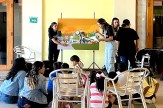Sometimes backyard paleontology turns into a swimming pool. Northeastern professor imparts wisdom on failure and taking risks during ‘Last Lecture’
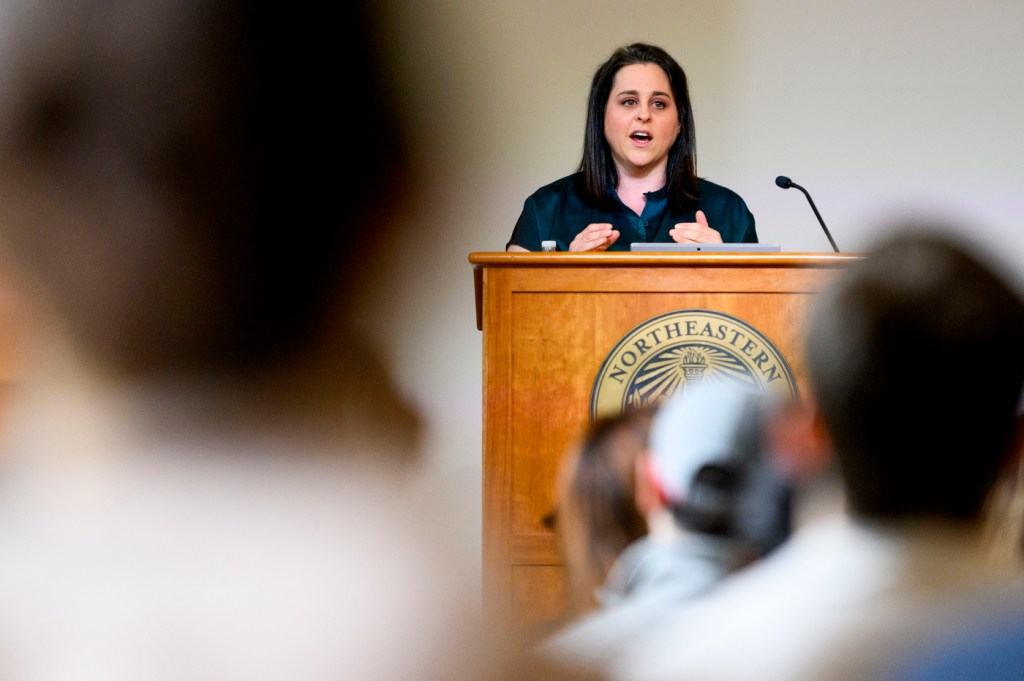
Her childhood paleontology dreams didn’t pan out when the brachiosaurus skull she and a friend were digging up in her family’s backyard turned out to be just a large rock.
But Jenn Ingemi, an associate teaching professor in behavioral neuroscience and psychology at Northeastern University, learned a valuable lesson from that disappointment.
“Disappointment happens, but it is very temporary,” Ingemi said. “I was very sad it was a rock. I was not sad when my dad covered it up with a pool.”
The episode was one of many changes in plans that Ingemi has experienced in her life. But Ingemi told students at the annual Last Lecture on Tuesday morning, that such moments are nothing to be ashamed of; rather they can lead to something amazing.
“Taking risks is scary,” Ingemi said. “But the rewards that come from them are incredible.”
The ceremonial Last Lecture for the graduating class is a tradition that started at Carnegie Mellon University in Pittsburgh and became popular in the mid-2000s after Randy Pausch, a professor at the university who discovered he had terminal cancer, delivered his final lecture at the school. Pausch’s lecture was turned into a book titled “The Last Lecture” which became a New York Times bestseller in 2008. Since then, universities across the country have adopted a last lecture series for graduating students as well.
In 2021, Northeastern’s Last Lecture was delivered by Rebecca Shansky, associate professor of psychology. Last year, Bridget Smyser, teaching professor of mechanical and industrial engineering, delivered the lecture.
On Tuesday, students filled the Curry Ballroom to hear Ingemi’s final take. She admitted that she was so excited to be selected as the last lecturer that she had accepted the honor without giving it much thought. That led to a last-minute panic on her part.
“What kind of experiences do I have to offer?” Ingemi recalled asking herself, after noting she was neither wealthy nor famous, possessed no fancy title and had hardly accumulated years and years of knowledge and wisdom.
But Ingemi said she realized “that was kind of the point.”
“That I struggled, worked through it … and I was able to put together a life that was meaningful,” Ingemi said.
That struggle continued after the backyard paleontology bust. Ingemi was finishing high school but she had no interest in college. Her parents had other ideas.
“Begrudgingly, I picked schools, applied and went on the tours,” Ingemi said.
But during her years at Stonehill College, she discovered that she loved the process of science. She also found a mentor who showed her that there was a place for people who loved science but didn’t want to go into medicine.
“I found a passion and excitement that I certainly never would have found if I didn’t go,” Ingemi said of college.
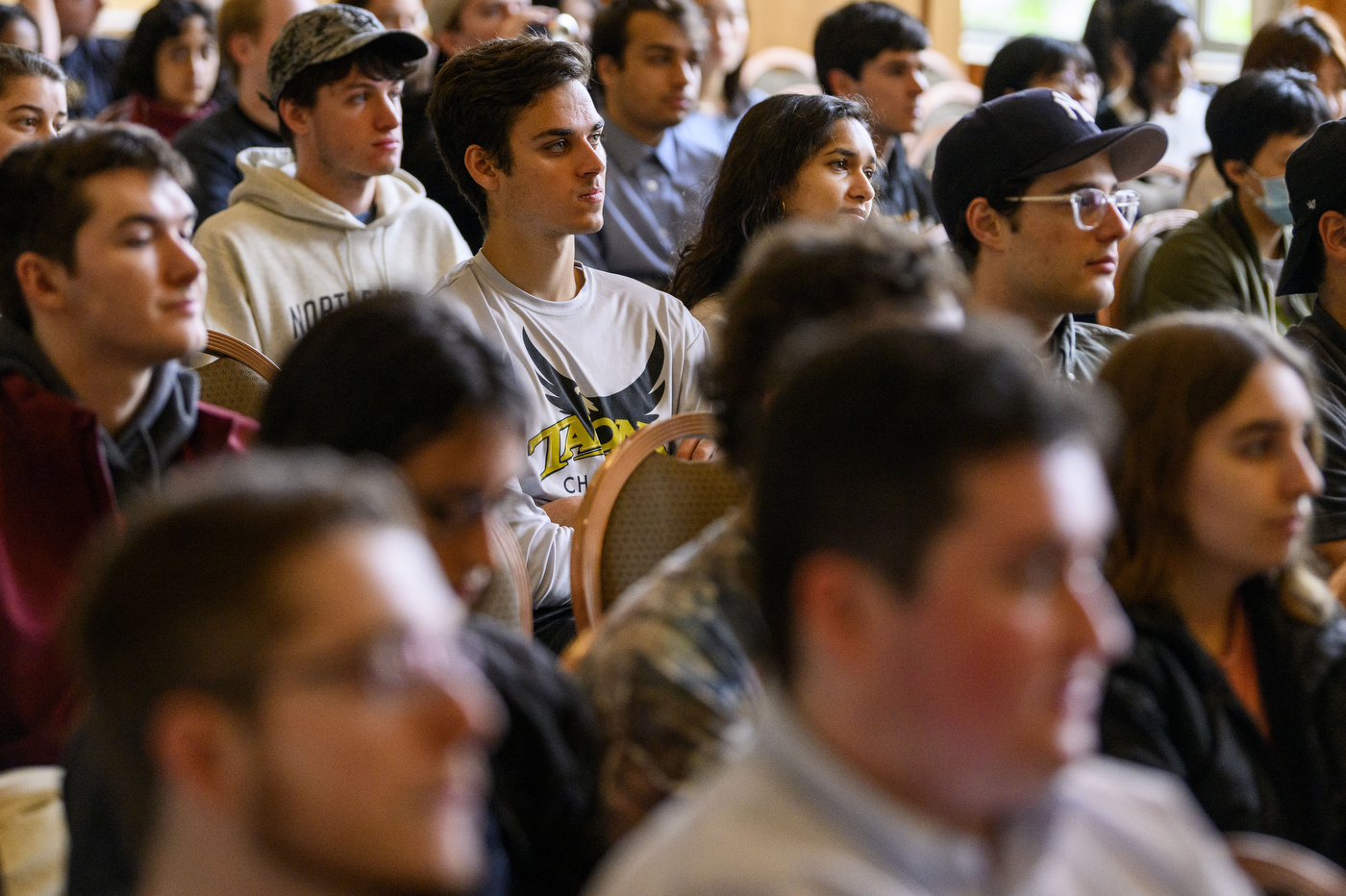
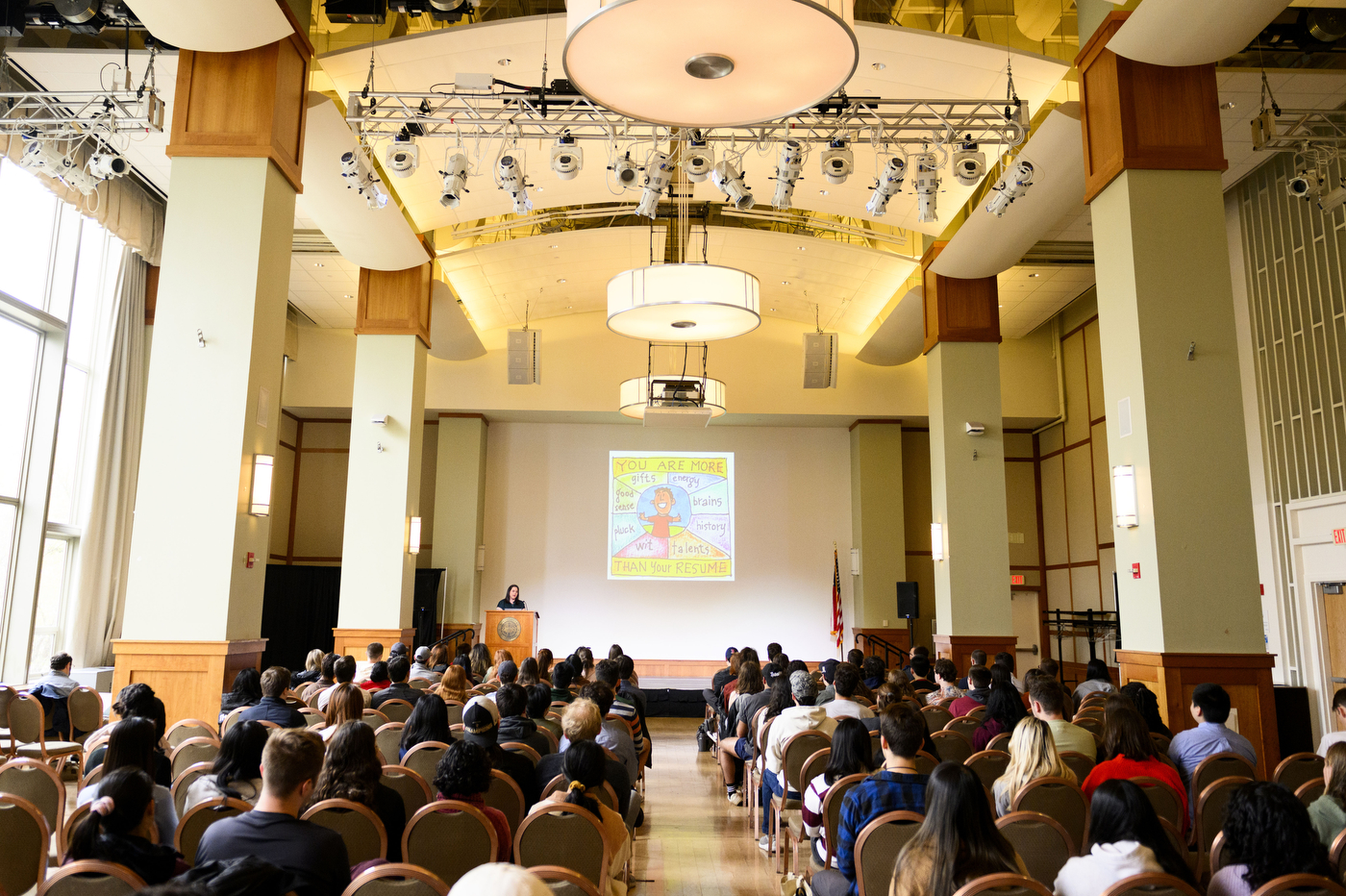
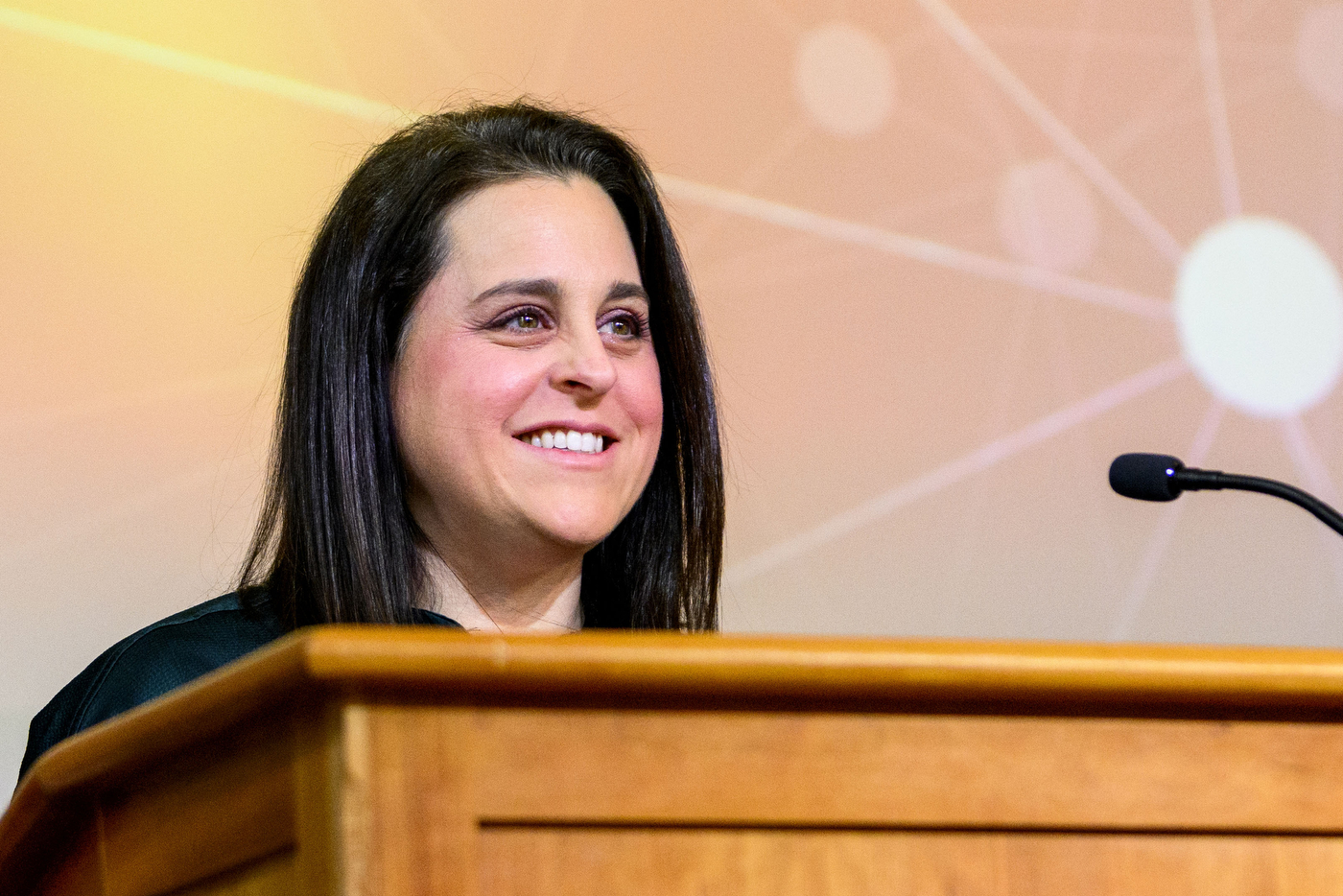
She next headed to UMass Chan Medical School in Worcester to get her Ph.D.
Once there, however, her plans changed again.
Struggling with her original focus on virology research, Ingemi attended a talk where she saw a video clip that captivated her. No more than a few seconds long, the clip of a frog unsuccessfully attempting to catch and eat a dragonfly prompted a question in Ingemi’s mind about the science behind the animals’ interaction.
“For the first time, I was able to use my excitement for biology to answer a question that was really interesting to me,” Ingemi said. “I found it really incredible how little we knew about the brain and human physiology, but there were ways to figure it out, and I could add to that.”
So, Ingemi spent the next eight years trying to understand neural circuitry and genes that contribute to behavior through research on a nematode.
“I wish I could say to you that my understanding of the nervous system came naturally, but it didn’t,” Ingemi said. “I struggled and failed more times than I can count.”
Meanwhile, Ingemi faced yet another period in her life where she felt lost (it happens to me a lot,” Ingemi noted) upon completion of her thesis.
“I thought I knew what I wanted to be when I grew up when I started my Ph.D.,” Ingemi said. “I really didn’t”
Ingemi said she didn’t want to do a post-doctoral fellowship, nor could she couldn’t see herself running a research lab.
But a friend asked her a simple question: What is it you love about being a graduate student?
She realized that the answer was teaching.
“One conversation led me to a career in higher education and a career at Northeastern,” Ingemi said.
In closing, she summed up her advice:
Failure is more often more important than success; take risks, the rewards are real; do what you leave; and always have a partner in crime.
“Each year and each semester, I learn so much from my students,” Ingemi said. “As students, you push me to think more deeply, I become more engaged, and I grow alongside you.”
“Good luck and have a great life,” Ingemi said.
Cyrus Moulton is a Northeastern Global News reporter. Email him at c.moulton@northeastern.edu. Follow him on Twitter @MoultonCyrus.



